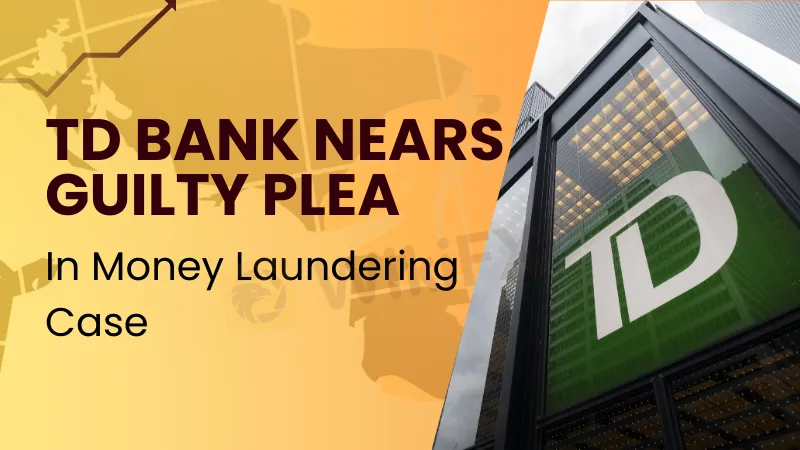Abstract:TD Bank is nearing a guilty plea over its US retail arm’s failure to prevent money laundering tied to illicit fentanyl sales. Learn more about the ongoing investigation.

TD Bank, Canada's second-largest lender, is allegedly close to entering a guilty plea in the United States on money laundering allegations. The probe comes from claims that TD's US retail business failed to block unlawful transactions linked to Chinese criminal organizations and fentanyl trafficking.
TD Bank Under US Federal Scrutiny
According to sources, US federal prosecutors are in discussions with TD Bank, and the bank's US retail unit is anticipated to reach a plea agreement within the next two weeks. The allegations underscore the bank's inability to establish appropriate anti-money laundering (AML) controls, notably regarding narcotics-related money laundering.
Authorities have claimed that the bank failed to maintain proper procedures to identify and prevent money laundering, allowing criminal gangs to siphon revenues from unlawful fentanyl sales. This is a big step forward in continuing regulatory attempts to address financial crime associated with the United States' opioid crisis.
Comprehensive Overhaul of AML Programs
In response to the attention, TD Bank stated in May that it was overhauling its anti-money laundering processes in the United States and worldwide. The bank disclosed an expenditure of more than C$500 million (US$400 million) in remediation activities, which included platform changes targeted at improving AML compliance.
The bank's reform came in response to mounting criticism from US and Canadian authorities alike. TD Bank had been investigated for compliance problems and had put aside more than $3 billion to handle legal difficulties stemming from the US government's investigations into its anti-money laundering policies.

Criminal Charges Rooted in Fentanyl Sales
Federal officials discovered a money-laundering scheme in New York and New Jersey, prompting the Department of Justice to launch the inquiry. The enterprise is accused of funneling hundreds of millions of dollars from unlawful fentanyl sales via TD Bank and other banking institutions.
The revelation sparked accusations that TD Bank was careless in its AML supervision, enabling illicit drug cash to flow through its networks unnoticed. The case emphasizes banks' vital role in preventing money laundering and the serious implications of failing to maintain adequate compliance systems.
Financial Institutional Implications
This case has far-reaching consequences for financial institutions operating in the United States and beyond. It emphasizes the need for strict anti-money laundering measures and the necessity for ongoing investment in compliance systems. Regulatory organizations, financial professionals, and legal experts are keeping a careful eye on the case, which might establish a precedent for future AML enforcement operations.
To avoid such failures, financial institutions, especially those operating across borders, are obliged to guarantee that their systems fulfill the highest regulatory compliance requirements. Failure to do so may result in substantial financial fines and reputational harm.
Conclusion
As TD Bank prepares to enter a guilty plea in the money laundering probe, the case serves as a sharp reminder of the continuing fight against financial crime. Regulators, financial professionals, and legal experts are expected to remain focused on this case in conversations about anti-money laundering compliance and enforcement.
Stay updated on TD Bank's money laundering case and its impact on financial institutions. Visit the WikiFX news page for the latest insights.











